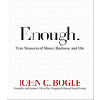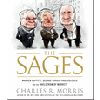Product Description
Billions of government dollars, and thousands of charitable organizations and NGOs, are dedicated to helping the world’s poor. But much of their work is based on assumptions that are untested generalizations at best, harmful misperceptions at worst.
Abhijit Banerjee and Esther Duflo have pioneered the use of randomized control trials in development economics. Work based on these principles, supervised by the Poverty Action Lab, is being carried out in dozens of countries. Drawing on this and their 15 years of research from Chile to India, Kenya to Indonesia, they have identified wholly new aspects of the behavior of poor people, their needs, and the way that aid or financial investment can affect their lives. Their work defies certain presumptions: that microfinance is a cure-all, that schooling equals learning, that poverty at the level of 99 cents a day is just a more extreme version of the experience any of us have when our income falls uncomfortably low.
This important book illuminates how the poor live, and offers all of us an opportunity to think of a world beyond poverty.
Abhijit Banerjee and Esther Duflo have pioneered the use of randomized control trials in development economics. Work based on these principles, supervised by the Poverty Action Lab, is being carried out in dozens of countries. Drawing on this and their 15 years of research from Chile to India, Kenya to Indonesia, they have identified wholly new aspects of the behavior of poor people, their needs, and the way that aid or financial investment can affect their lives. Their work defies certain presumptions: that microfinance is a cure-all, that schooling equals learning, that poverty at the level of 99 cents a day is just a more extreme version of the experience any of us have when our income falls uncomfortably low.
This important book illuminates how the poor live, and offers all of us an opportunity to think of a world beyond poverty.
Reviews/Praise
Library Journal Best of the Year Selection
“Narrator Brian Holsopple’s nicely paced, steady reading conveys world poverty in a unique manner and is highly recommended for all university libraries.”
—Library Journal [starred review]
“[Poor Economics] provides an inspirational audio recommended for any economics or nonfiction audio library.”
—Midwest Book Review
“Reads like a version of Freakonomics for the poor.”
—Fast Company
“A must . . . for anyone who cares about world poverty. Poor Economics represents the best that economics has to offer.”
—Steven D. Levitt, author of Freakonomics
“A marvelously insightful book by two outstanding researchers on the real nature of poverty.”
—Amartya Sen, winner of the Nobel Prize for Economics
“A smart, engaging investigation of global poverty and why we’re failing to eliminate.”
—Kirkus Review
“A refreshingly original take on development.”
—The Guardian
“In an engrossing new book they draw on some intrepid research and a store of personal anecdotes to illuminate the lives of the 865m people who, at the last count, live on less than $0.99 a day.”
—The Economist
“Compelling and important. . . . An honest . . . account about the poor that stands a chance of actually yielding results.”
—Forbes.com
“Excellent. . . . Move[s] the debate to the crucial question: What kind of aid works best?”
—The New York Times
“Marvelous, rewarding. . . . The sheer detail and warm sympathy on display reflects a true appreciation of the challenges their subjects face. . . . They have fought to establish a beachhead of honesty and rigor about evidence, evaluation and complexity in an aid world that would prefer to stick to glossy brochures and celebrity photo-ops.”
—The Wall Street Journal
“It is the rich and humane portrayal of the lives of the very poor that most impresses.”
—Financial Times
“Gloriously instructive.”
—Cleveland Plain Dealer
“Incisive, scientific, compelling and very accessible.”
—Financial World (UK)


